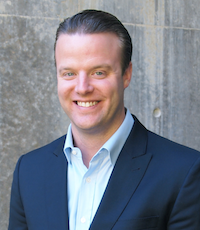
Jason Forrest is a sales professional, author, professional speaker, and consultant to homebuilders.
“Beyond the finish line, I’d heard from so many people [that] maintenance is the hardest thing. [I used to think], ‘Try losing 200 pounds.’ But maintenance really is a lifetime.”
–Erik Chopin, Biggest Loser
Like many brokers, you may be providing access to great training for your Realtors. But even after you equip them with all the best information, they, like Erik, will need someone in their lives to hold them accountable.
People can be afraid of that word – accountability. They think it’s going to mean someone’s breathing down their neck, shining a spotlight on their every misstep and making them feel they’re just not enough. It doesn’t have to be that way, though. When your team members see that time with you increases their paychecks and helps them achieve more satisfaction in their careers, they will want you to play the role of coach in their lives.
The key differences between standalone seminars and coaching are that coaching is a long-term effort; involves getting in the trenches with sales professionals; and holds sales professionals accountable to being more than they believe they can be.
Providing the best training and continuing education opportunities is a good start. But even the most powerful lessons do no good if they are not applied. If your team members don’t know what to do once they’re back in the field showing homes, they won’t retain that knowledge. At best, one-day training events will produce a shot-in-the-arm effect, with a short-term boost in sales numbers.
Sales Executive Council research shows that performance increases 22 percent with training seminars alone. But without continued coaching and on-the-job reinforcement, sales professionals will lose 87 percent of the training after just one month. With long-term coaching, performance can increase by up to 88 percent, because sales professionals retain the lessons from training and discover how to implement them successfully and consistently.
Putting lessons into practice is easy, but it’s easier not to. Just ask the former Biggest Loser contestants who have gained all their weight back. Those who succeed typically have a support system to keep them on track, motivated and inspired. And that’s where you come in. Rather than seeing yourself as an overseer of your team, consider yourself a coach.
Reflection questions:
What examples do you have of times you’ve seen the need for follow-up in your own life (diets, breaking habits, etc.)?
What examples do you have of times you’ve seen the need for follow-up in your professional life (or in the lives of your team members)?
In your own words, what is the difference between coaching and education?
Where do you feel your existing/prior training approach falls (mostly coaching, mostly training, or somewhere in between)? Why?
This post has been adapted for this audience from Jason Forrest’s upcoming book on sales coaching.
Named one of Training Magazine’s Top Young Trainers of 2012, Jason Forrest is an expert at creating high-performance sales cultures through complete training programs. He incorporates experiential learning (rather than theory) to increase sales, implement cultural accountability, and transform builders into sales organizations that build homes.
A sales professional at heart, Forrest is the author of “Creating Urgency in a Non-Urgent Housing Market” and “40-Day Sales Dare for New Home Sales.” He is also regular featured speaker at leading professional builder association events and national conferences and is a member of the National Speakers Association’s Million Dollar Speakers Group.
As a consultant for many of the leading homebuilders in the United States, Canada, and Australia, Forrest’s competitive distinction is his behavior-modification approach (which focuses on people, process, and presentation); his ability to create urgency; and his focus on culture change. Learn more at www.forrestpg.com.
